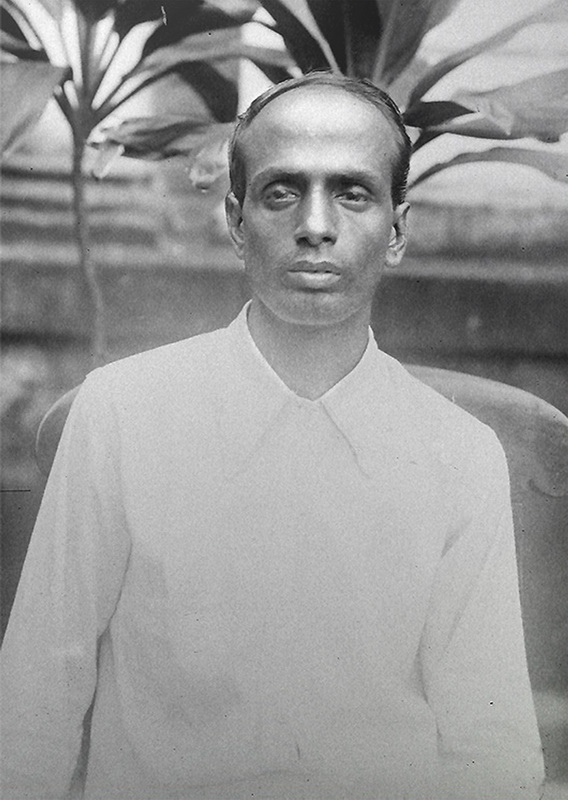On This Day 18 April 2024 Thursday
On This Day 18 April, Sam Vikram: 2081 Purnimanta Mass: Chaitra Paksha: Tithi: Sukla Paksha Ekadashi – Apr 18 05:32 PM – Apr 19 08:05 PM, let us have a quick look of the events and anniversaries of India and the world
 Panchang /
Panchang /
Shaka Samvat: 1946
Purnimanta: Chaitra
Tithi: Sukla Paksha Ekadashi – Apr 18 05:32 PM – Apr 19 08:05 PM
On This Day
Festivals Today:
Festials Tomorrow: Kaamada
Day Today:
Day Tomorrow:
Yoga:
Ganda – Apr 17 11:50 PM – Apr 19 12:43 AM
Vridhi – Apr 19 12:43 AM – Apr 20 01:44 AM
Karana:
Garija – Apr 18 04:20 AM – Apr 18 05:32 PM
Vanija – Apr 18 05:32 PM – Apr 19 06:47 AM
Yoga”
Sunrise: 5:56
Sunset: 18:44
Moonrise: 14:00
Moonset: 3:28
 Auspicious Time
Auspicious Time
Abhijit Muhurat – 11:54 AM – 12:45 PM
Amrit Kaal – 06:09 AM – 07:55 AM
Brahma Muhurat – 04:18 AM – 05:06 AM
![]() Inauspicious Time
Inauspicious Time
Rahu – 1:56 PM – 3:32 PM
Yamaganda – 5:56 AM – 7:32 AM
Gulika – 9:08 AM – 10:44 AM
Dur Muhurat – 10:12 AM – 11:03 AM, 03:19 PM – 04:10 PM
Varjyam – 09:26 PM – 11:14 PM
Information Source: https://www.prokerala.com/
Today / आज
Freedom Fighters sacrificed- At Least: 7
Major Historical Events
- Chittagong Armoury Raid (April 18, 1930): This was a daring act of rebellion against British colonial rule orchestrated by Indian revolutionaries. Under the leadership of Surya Sen, the insurgents aimed to capture the arms and ammunition from the armouries of police and the auxiliary forces in Chittagong, then part of the Bengal province. Their objective was to overthrow the British government in the region. The raid was part of a larger rebellion, intended to be a stepping stone towards full Indian independence. While the raid did not achieve all of its objectives, it served as an inspirational chapter in India’s struggle for freedom, showcasing the courage and commitment of the revolutionaries.
- Doolittle Raid on Japan (April 18, 1942): This operation was a significant morale booster for the United States during World War II. Just months after the attack on Pearl Harbor, Lt. Colonel James Doolittle led a group of B-25 bombers in a surprise raid that took off from the USS Hornet to bomb Tokyo and other Japanese cities. While the material damage was relatively minor, the psychological impact was substantial, leading to a shift in Japanese defense strategy and bolstering American morale.
- U.S. Embassy Bombing in Beirut (April 18, 1983): This was one of the deadliest attacks on a U.S. diplomatic mission. A suicide bomber drove a van filled with explosives into the U.S. Embassy in Beirut, Lebanon, killing 63 people, including 17 Americans. The bombing was a significant escalation in the violence during the Lebanese Civil War and marked the beginning of a series of attacks on Western targets in the region. It led to increased U.S. military presence in Lebanon and a greater focus on the dangers of international terrorism.
History in Brief On This Day
Bandung Conference Start: The Bandung Conference, a significant meeting of Asian and African states, began on April 18, 1955, focusing on peace and the role of the Third World in the Cold War era.
Zimbabwe Independence: Rhodesia gained independence and became Zimbabwe on April 18, 1980.
Shah Jahan and Mumtaz Mahal: Mughal Emperor Shah Jahan married Mumtaz Mahal on April 18, 1612. She later inspired the construction of the Taj Mahal.
Anniversaries On This Day
Death of Albert Einstein (April 18, 1955): Albert Einstein, the theoretical physicist who developed the theory of relativity, which forms a core part of modern physics, passed away on April 18, 1955. He is best known for his equation , which articulates the concept of mass-energy equivalence. Einstein’s intellectual achievements and originality have made the word “Einstein” synonymous with genius. He died in Princeton, New Jersey, refusing surgery for an aortic aneurysm and leaving behind a legacy that profoundly changed our understanding of the universe.
Birth of Sawai Madhavrao (April 18, 1774): Sawai Madhavrao was born on April 18, 1774, and became the 9th Peshwa of the Maratha Empire in the Indian subcontinent. As Peshwa, his rule was characterized by a series of internal conflicts and the growing power of the British East India Company. Despite his leadership position, much of his rule was influenced by others, notably Nana Phadnavis. His reign oversaw significant political and military challenges that eventually led to the decline of the Maratha Empire.
Guru Tegh Bahadur (Birth: April 1, 1621): Guru Tegh Bahadur was the ninth of the ten Gurus of Sikhism. He was born on April 1, 1621, in Amritsar and originally named Tyaga Mal. He is revered for his sacrifice for religious freedom, having been executed in 1675 by the Mughal emperor Aurangzeb for refusing to convert to Islam. His legacy includes contributions to the Guru Granth Sahib, the holy scripture of Sikhism. Guru Tegh Bahadur is also remembered for his poetry and hymns, which focused on unity with the divine and living a life imbued with moral integrity and spirituality.
Death of Tantia Tope: Tantia Tope, a notable Indian freedom activist, died on April 18, 1859.
Birth of Maharshi Dhondo Keshav Karve: An Indian social reformer and educator, was born on April 18, 1858, in Sheravali.
Death of G Subramania Iyer: Indian freedom activist G Subramania Iyer passed away on April 18, 1916, in Thanjavur, India.
Birth of Poonam Dhillon: Indian actress Poonam Dhillon was born on April 18, 1961.
Death of Khursheed Bano: Indian actress and singer Khursheed Bano passed away on April 18, 2001.
Birth of Jochen Rindt: German racing driver Jochen Rindt was born on April 18, 1942, in Mainz, Germany.
Birth of Haile Gebrselassie: Ethiopian marathon runner and athlete, was born on April 18, 1973, in Assela, Ethiopia.
Birth of Miguel Cabrera: Venezuelan baseball player Miguel Cabrera was born on April 18, 1983, in Maracay, Venezuela.
Birth of Divock Origi: Belgian football player Divock Origi was born on April 18, 1995, in Ostend, Belgium.
Death of Bruno Sammartino: WWE wrestler Bruno Sammartino passed away on April 18, 2018.
On This Day: Acts of Valor in the Freedom Struggle
Introduction
April 18th marks a significant date in the history of resistance against oppressive forces. It is a day that commemorates acts of bravery and ultimate sacrifices made by individuals fighting for freedom from colonial rule across various regions.
Tragedy in Nizamabad (1919)
On this day in 1919, following the Nizamabad tragedy, British troops committed severe atrocities in Nizamabad, Punjab (now in Pakistan). Muhammad Ramzan, a local villager grazing his goats, inadvertently crossed paths with the soldiers. He was shot and killed, and his body was disgracefully dragged and abandoned near a village pond. This incident highlights the brutal measures used by the British troops against civilians during this period.
Sacrifice in the Indian National Army (1944)
Mehar Khan, a lance-naik in the Indian National Army, which was formed to overthrow British rule in India, lost his life on April 18, 1944, during an Allied air raid in New Guinea. His commitment reflects the global reach of the Indian struggle for independence, with volunteers fighting far from their homeland.
Tatya Tope’s Rebellion and Martyrdom (1859)
Tatya Tope, a major figure in the Indian Rebellion of 1857, was a master of guerrilla warfare. After numerous battles and evading capture through a remarkable journey across India, he was betrayed and captured. Tried by a British military court, Tatya Tope was executed on April 18, 1859. His legacy lives on in Indian history as a symbol of resistance and tenacity.
Damodar Chapekar’s Act of Retaliation (1898)
On this day in 1898, Damodar Chapekar avenged the brutalities inflicted by the British Plague Commissioner in Poona by assassinating him. This act of retaliation was a response to the oppressive measures enforced during a plague epidemic, including violations of personal freedoms and dignity.
Chittagong Armoury Raid (1930)
The raid on the Chittagong Armoury on April 18, 1930, was a bold initiative led by Surjya Sen and his group of revolutionaries. They declared the independence of Chittagong, though temporarily. The raid was followed by confrontations at Jalalabad Hills, where many revolutionaries, including Harigopal Bal and Pulin Bikash Chandra Ghosh, laid down their lives.
Legacy of the Chapekar Brothers
Reflecting on the daring acts of the Chapekar brothers and other revolutionaries on this day provides insight into the fervor and resolve that fueled the freedom struggle. These acts, though separated by time and geography, share a common thread of fierce resistance against oppressive regimes.
Conclusion
April 18th serves as a reminder of the bravery and sacrifices of individuals who stood against colonial powers. Their stories of valor from the dense forests of Chittagong to the streets of Poona form an integral part of the collective memory of resistance movements worldwide. On this day, we remember and honor their legacy, which continues to inspire the pursuit of justice and freedom across generations.
Feature Image: The image presents a monochromatic portrait of Masterda Surya Sen, a notable figure in Indian history. He has a distinct balding pattern with thin hair on the sides of his head, and his ears are prominently visible. His attire consists of a traditional kurta with a high collar, characteristic of the style worn during the early 20th century in India. Behind him, the soft blur of foliage provides a natural backdrop. His expression is stoic and penetrating, suggesting a person of deep thought and determination. (Click here to see image)
If you want to buy books on the subject please visit this page: https://www.amazon.in/.
Please note that if you buy anyhing using this link we will get some affiliate commission. If you want to support us, please use this link in case you need to buy goods from https://www.amazon.in/
